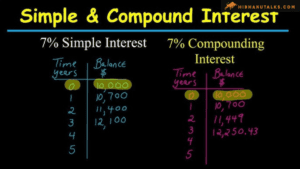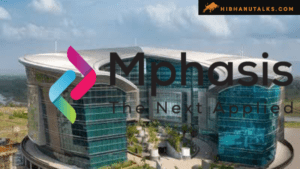
JSW Group’s Bold Move: Shifting Rs 40,000 Crore EV and Battery Project from Odisha to Maharashtra
Contents
- 1 JSW EV project Maharashtra
- 1.1 JSW Group’s Bold Move: Shifting Rs 40,000 Crore EV and Battery Project from Odisha to Maharashtra
- 1.1.1 The Shift: From Odisha to Maharashtra – What’s Driving JSW Group?
- 1.1.2 The Odisha Setback: What Happened?
- 1.1.3 Why Maharashtra? A Strategic Hub for India’s EV Ambitions
- 1.1.4 Volkswagen Joint Venture on the Horizon?
- 1.1.5 Maharashtra’s EV Future: A Game Changer for India?
- 1.1.6 Conclusion:
- 1.1.7 FAQs:
- 1.1.7.1 1.Why is JSW Group shifting its EV and battery project from Odisha to Maharashtra?
- 1.1.7.2 2.How much is JSW Group investing in the EV and battery project?
- 1.1.7.3 3.Which cities in Maharashtra are being considered for the project?
- 1.1.7.4 4.What was the original plan for the project in Odisha?
- 1.1.7.5 5.What will the project include?
- 1.1.7.6 6.Is JSW Group partnering with Volkswagen for this project?
- 1.1.7.7 7.What impact will this project have on Maharashtra’s economy?
- 1.1.7.8 8.What are the potential benefits for India’s EV market?
- 1.1.7.9 9.When was the MoU with Odisha signed?
- 1.1.7.10 10.What is the significance of this shift for India’s overall EV industry?
- 1.2 JSW EV project Maharashtra
- 1.3 G R Infraprojects Surges 66%: Major Contract Wins Propel Stock Rally
- 1.1 JSW Group’s Bold Move: Shifting Rs 40,000 Crore EV and Battery Project from Odisha to Maharashtra
JSW EV project Maharashtra
JSW Group’s Bold Move: Shifting Rs 40,000 Crore EV and Battery Project from Odisha to Maharashtra
In a strategic pivot, Sajjan Jindal-led JSW Group is making waves in the electric vehicle (EV) and battery manufacturing space by eyeing Maharashtra for a massive Rs 40,000 crore project. Initially planned for Odisha, this shift is poised to position Maharashtra as a major player in India’s EV revolution. With Aurangabad and Nagpur as frontrunners, this move signals a new chapter in India’s EV landscape.

The Shift: From Odisha to Maharashtra – What’s Driving JSW Group?
In a surprising move, JSW Group is reportedly transferring its Rs 40,000 crore electric vehicle and battery project from Odisha to Maharashtra, according to reports by Livemint.com. This decision comes just seven months after the initial agreement with Odisha’s government, led by the Biju Janata Dal (BJD) under Chief Minister Naveen Patnaik. The project had been seen as a major win for Odisha’s industrial growth, but Maharashtra’s advantages seem to have tipped the scales in its favor.
With Aurangabad and Nagpur emerging as the leading contenders for the project, Maharashtra is set to become a major hub for EV and battery manufacturing. While India Today has not independently verified this information, it is clear that the stakes are high, and the competition between the states is fierce.
The Odisha Setback: What Happened?
In February, JSW had signed a Memorandum of Understanding (MoU) with the Odisha government to develop advanced EV and battery manufacturing facilities in Cuttack and Paradip. The project was expected to include a 50 GWh EV battery plant, catering to both mobility and energy storage needs, alongside plans for commercial and passenger electric vehicle production.
The comprehensive project also featured auto component manufacturing, such as e-powertrains, a lithium refinery, and a copper smelter. It was seen as a significant step toward advancing India’s EV ecosystem. However, despite these grand plans, the shift from Odisha to Maharashtra indicates a change in strategic priorities for JSW Group, potentially driven by more favorable business conditions in Maharashtra.


Why Maharashtra? A Strategic Hub for India’s EV Ambitions
The decision to focus on Maharashtra underscores the state’s growing prominence in the EV sector. Both Aurangabad and Nagpur offer strategic advantages, including strong infrastructure, proximity to automotive clusters, and government support. These cities are well-positioned to house large-scale manufacturing plants, with the potential to drive innovation and growth in the EV market.
Maharashtra has been aggressively courting investments in the EV space, offering incentives and policy support to attract major players. JSW’s move could further bolster the state’s status as a leading hub for EV manufacturing in India, accelerating its ambitions to lead the country’s green mobility revolution.
Volkswagen Joint Venture on the Horizon?
Another exciting development surrounding this project is the possibility of a joint venture between JSW Group and the Volkswagen Group. Reports from Moneycontrol.com suggest that the two companies are in discussions to explore potential collaboration for EV manufacturing in India. If this partnership materializes, it could bring significant synergies, boosting India’s EV manufacturing capabilities and advancing technology transfer.
Volkswagen’s entry into the Indian EV space through JSW would mark a significant milestone, bringing advanced European expertise to the country’s rapidly growing market.


Maharashtra’s EV Future: A Game Changer for India?
JSW Group’s Rs 40,000 crore investment in Maharashtra could be a game-changer for both the state and India’s EV sector. By shifting the project from Odisha, JSW is betting on Maharashtra’s infrastructure, resources, and strategic advantages. The state’s existing automotive ecosystem, coupled with robust policy support, makes it a perfect fit for this large-scale EV and battery project.
This project has the potential to significantly boost local economies, create thousands of jobs, and position Maharashtra as a national leader in electric mobility and battery manufacturing.


Conclusion:
JSW Group’s decision to relocate its Rs 40,000 crore EV and battery project to Maharashtra reflects a broader vision of making India a global leader in electric mobility. With Aurangabad and Nagpur vying for the project, JSW EV project Maharashtra, the state is set to play a crucial role in the country’s green energy future. The potential collaboration with Volkswagen only adds to the excitement surrounding this project, signaling a bright future for India’s EV sector.
FAQs:
1.Why is JSW Group shifting its EV and battery project from Odisha to Maharashtra?
A. Maharashtra offers better strategic advantages, infrastructure, and government support, making it a more attractive location for the project.
2.How much is JSW Group investing in the EV and battery project?
A. JSW Group is investing Rs 40,000 crore in the project.
3.Which cities in Maharashtra are being considered for the project?
A. Aurangabad and Nagpur are the top contenders for the EV and battery project.
4.What was the original plan for the project in Odisha?
A. The original plan involved setting up EV and battery manufacturing facilities in Cuttack and Paradip, Odisha.
5.What will the project include?
A. The project will feature a 50 GWh EV battery plant, manufacturing facilities for commercial and passenger EVs, and auto component production.
6.Is JSW Group partnering with Volkswagen for this project?
A. JSW is reportedly in talks with the Volkswagen Group for a potential joint venture in EV manufacturing.
7.What impact will this project have on Maharashtra’s economy?
A. The project is expected to create thousands of jobs, boost local economies, and position Maharashtra as a leader in the EV sector.
8.What are the potential benefits for India’s EV market?
A. This project will significantly advance India’s EV manufacturing capabilities and contribute to the country’s green mobility goals.
9.When was the MoU with Odisha signed?
A. JSW signed the MoU with Odisha’s government in February.
10.What is the significance of this shift for India’s overall EV industry?
A. The shift to Maharashtra reflects growing competition among states to attract major investments in the EV sector, positioning India as a key player in global electric mobility.
JSW EV project Maharashtra
G R Infraprojects Surges 66%: Major Contract Wins Propel Stock Rally





















Post Comment